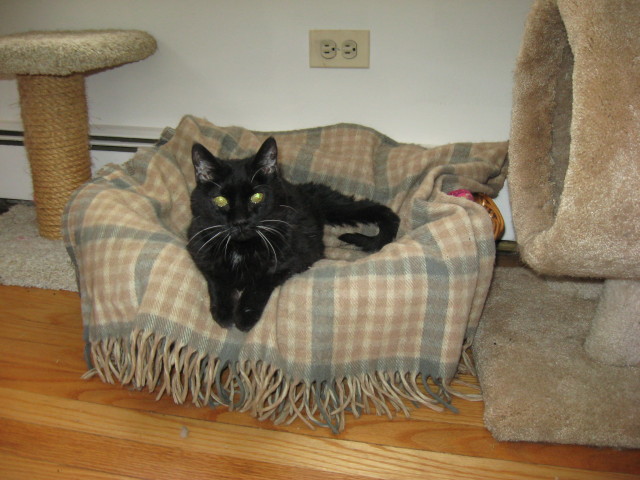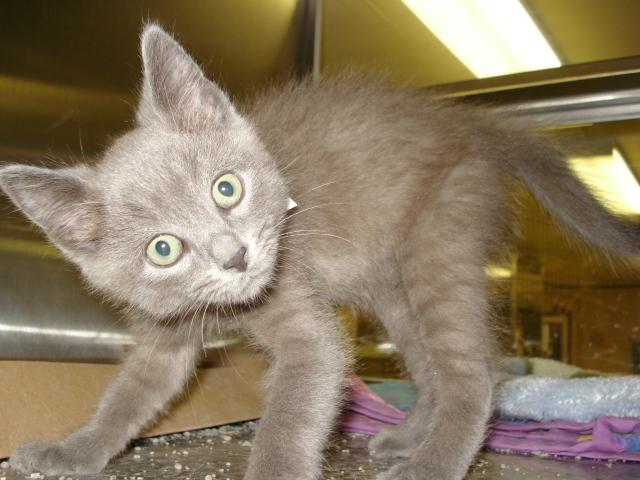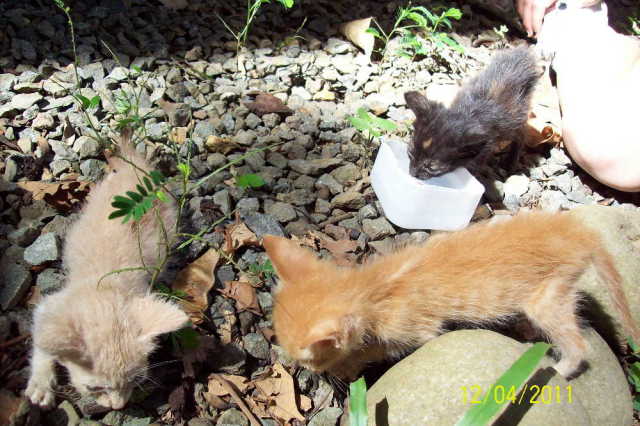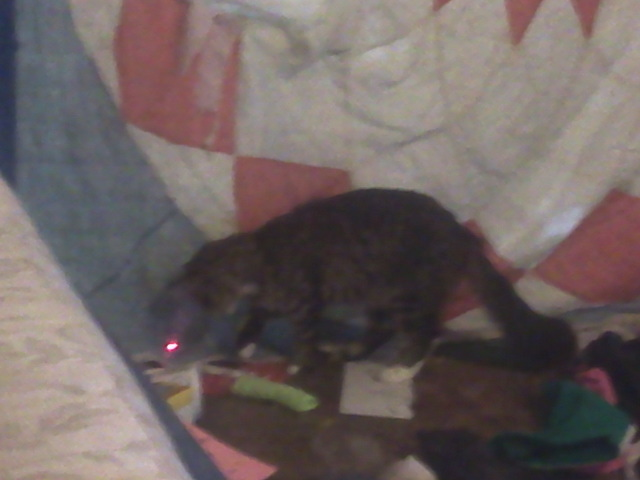QuestionI have a 10 month old, indoor kitty. She's not over-weight but loves to constantly eat all day if she can so I try to limit her food. I was gone for a few days so I made sure she had plenty of food and water when I left. My roommates were around so I wouldn't have to worry too much. When I got back at night, she made a loud and low "moawl" sound and started "gagging" she then threw up a lot of food. Usually she would eat the vomit but it seems like she ate too much and didn't want to eat anymore. She threw up four times that night (each time getting less and less vomit) and a hairball. And twice (very little-liquid) in the morning. She tried throwing up (maybe a hairball?) but nothing came out.
She's shedding a lot and I keep brushing her fur but there's still a lot of hair coming out. I think she has a hairball problem but I wanted to ask for your opinion as to whether I should take her to the vet or give her hairball control food.
AnswerHi Jenny,
I wouldn't make any food changes while she's having belly issues. It's okay to wait 48 hours for most cats at this age before getting them in to a vet to see if they have a passing upset tummy, as long as the kitty is still defecating and she doesn't have other symptoms like stomach tenderness, staggering/neurological problems or pawing at the mouth. If she is not defecating at all, vomiting can indicate an intestinal blockage, and she should be seen immediately. Pawing at the mouth or stomach tenderness can indicate a foreign body or mass, and these also need to be addressed right away. If none of these are present, watch her for 48 hours, and withhold food for most of it to prevent more vomiting. Slowly introduce small amounts of a mild food like stage one chicken baby food. This is gentler on her stomach than cat food.
If the vomiting continues beyond 48 hours, she needs to see a vet. They can help determine the cause. Hairballs are possible, and the vet can prescribe a lubricant laxative to help hair pass through the intestines. You may also be advised to add fiber to her diet or switch to a hairball formula food. However, if something else is suspected, an anti-nausea medication will probably be prescribed, as well as an antibiotic/anti-inflammatory, and perhaps a dewormer, just in case parasitic worms are to blame. The antibiotic will generally cover some bacterial infections and protozoan parasites. She may also need some fluids under the skin if she is dehydrated at this point.
Good like with her!
Jessica

 Worried that my cat has a UTI??
Question
Oscar
Hello,
My name is Danielle and I have t
Worried that my cat has a UTI??
Question
Oscar
Hello,
My name is Danielle and I have t
 Senile Cat?
Question
Chloe
I have a cat thats about 18 1/2 years ol
Senile Cat?
Question
Chloe
I have a cat thats about 18 1/2 years ol
 Rehabilitating aggressive rescue cat!
QuestionA friend of me and my husbands was told a week
Rehabilitating aggressive rescue cat!
QuestionA friend of me and my husbands was told a week
 Orphaned baby kittens in the rainforest
Question
kittens
Hello,
My wife and I are volunteers in
Orphaned baby kittens in the rainforest
Question
kittens
Hello,
My wife and I are volunteers in
 dones my cat sweet pea look pregnant?
Question
sweet pea sweet pea nipples
Hi w
dones my cat sweet pea look pregnant?
Question
sweet pea sweet pea nipples
Hi w